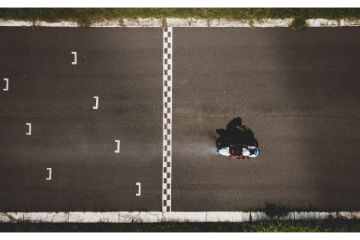
In a recent Supreme Court ruling, the question of when the limitation period for a claim for damages in the Netherlands begins to run was addressed again. Once a claim is time-barred, there is no longer a legally enforceable obligation with respect to a claim for damages. Our trial attorneys in the Netherlands are frequently confronted with the question of when a claim is time-barred and/or when the statute of limitations on a claim can still be “interrupted.” The beginning of the statute of limitations for a claim for damages can be difficult to determine in certain circumstances. The particular circumstances of the individual case play an important role in this respect.
When does the limitation period start in the Netherlands?
According to the Dutch Civil Code, the right to claim compensation for damages in the Netherlands is subject to a limitation period of five years from the day following the day on which the injured party became aware both of the damage and of the person responsible. In any case, a legal claim for damages in the Netherlands (or for payment of a fine) shall become time-barred twenty years after the event in which the damage was caused or the fine became due.
It is therefore a matter of actual knowledge and not a mere suspicion of damage or the question of which person is liable for the damage. This is in line with the established case law of the Dutch Supreme Court.
INTERRUPTION OF THE LIMITATION PERIOD FOR A CLAIM under Dutch law
In order to extend a limitation period, the limitation of a claim may be interrupted under Dutch law. The limitation period of a claim for performance of an obligation is interrupted in the Netherlands by a so-called written reminder or by a written notice in which the creditor unequivocally reserves his right to performance.
Our litigation attorneys will be happy to advise and assist you in sending an interruption letter when the expiration of a statute of limitations is imminent.
CIVIL court proceedings concerning the limitation period
In the proceedings before the Dutch Supreme Court (which concerned a divorce, but whose conclusions are transferable to a broader context), it was argued that the debtor had acted unlawfully, and he was ordered to pay damages for the resulting loss. The appeal before the Supreme Court then focused solely on the question of whether the debtor’s claim for damages was barred by the expiration of the five-year period of Article 3:310 (1) of the Dutch Civil Code.
THE Dutch SUPREME COURT ON STATUTE OF LIMITATIONS AND SUBJECTIVE VS. OBJECTIVE STANDARD OF REVIEW
In the appeal, it was complained that the court in the lower instance had wrongly applied an objective criterion for knowledge of the damage within the meaning of Article 3:310(1) of the Dutch Civil Code.
According to the Supreme Court, this is incorrect.
“Article 3:310(1) of the Civil Code provides that the legal right to compensation for damage shall expire five years after the beginning of the day following the day on which the injured party became aware of both the damage and the person liable for the damage. According to the established case law of the Supreme Court, the requirement that the injured party has become aware of both the damage and the person liable for the damage must be interpreted as actual knowledge, so that the mere presumption of the existence of damage or the mere presumption of which person is liable for the damage is not sufficient. The limitation period under Article 3:310 (1) of the Civil Code shall commence only on the day following the day on which the injured party is actually in a position to bring an action for compensation for the damage suffered by him. This is the case when the injured party has obtained sufficient certainty – which need not be absolute – that the damage was caused by the shortcomings or wrongful conduct of the person involved. The answer to the question of when the limitation period began to run depends on the circumstances of each case.
COURT OF FIRST INSTANCE APPLIES AN INCORRECT STANDARD TO THE QUESTION OF THE STATUTE OF LIMITATIONS
The Supreme Court ruled that, contrary to this legal standard, the court of lower instance had applied an incorrect standard of review. Indeed, the court of lower instance had based the start of the limitation period on what “could and should reasonably have been known” (reason 3.3):
“The lower court considered in para. 5.7 that the wife or at least her legal advisors could or should have reasonably inferred from the letter of June 12, 2008 that the husband had further goodwill claims around January 1, 2005 in addition to the advance payment of €600,000. The court did not follow the wife in her argument that the letter, judged according to the situation at the time, could also be interpreted differently with regard to the amount of the goodwill claims awarded. In this respect, the court held that a reasonable interpretation of this letter implied that it could be inferred that the financial ties had been severed by the transfer of the Goodwilla claims to Stichting Gesde. The fact that the wife interpreted the letter differently and therefore concluded from this letter and the other documents submitted by the husband in 2008 that the goodwill claims amounted to €600,000 had, in the view of the court, to be to her detriment.
If these considerations of the lower court are to be understood to mean that it is sufficient for the commencement of the limitation period that the wife could have known or should have known of the damage, the lower court proceeded on the basis of an incorrect interpretation of the law.”
THE INJURED PARTY MUST HAVE ACTUAL KNOWLEDGE OF THE DAMAGE AND THE INJURING PARTY
For the injured party to have actual knowledge, it must be sufficiently certain that damage has occurred. According to the Supreme Court, this does not have to be absolute certainty, but it also cannot go so far that the injured party “should have known”, so that a purely objective standard would be decisive. Rather, a subjective standard and, in addition, the objective circumstances of the case are decisive.
SECOND OPINION ON THE START OF THE LIMITATION PERIOD FOR CLAIMS FOR DAMAGES
You may have previously been told that your case no longer has a chance of success because your claim is time-barred. A second examination may possibly lead to the conclusion that your claim is not time-barred and that the limitation period for asserting claims for damages has not yet begun or has only begun later. Ultimately, this is not an objective criterion, but must be considered subjectively. Seek advice on this from an experienced attorney for procedural law.
SPECIALIST Dutch attorney for limitation periods
Do you want to know about the limitation periods for a claim for damages? Then contact the Dutch attorneys for limitationperiods Remko Roosjen or Sander van Someren Gréve at MAAK Advocaten. We can assist you in initiating proceedings or advise you on whether a claim is time-barred.







